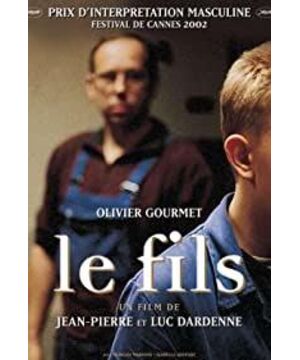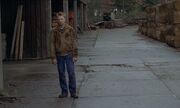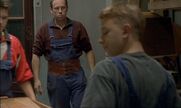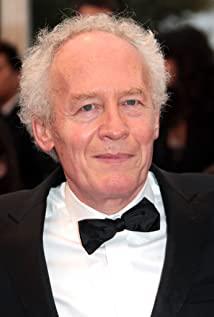A movie I picked at noon when I wanted to pass the time. If I remember correctly, the category I ordered was comedy. I don’t understand why such a dull literary film appeared.
The duration of the film is only about one and a half hours, and the whole scene is based on the perspective of the hero Olivier. When he received the application of the murderer who killed his son to work here, his shock and hesitation were all overwhelmed. The camera recorded silently.
There are not many scenes of communication in the film, and even at the end of the abrupt end, it is silent, but even so, the story that the director wants to express has been fully expressed.
Because I rarely watch literary and artistic films, I am very fascinated when I watch them, and even feel that this is just telling a story through the lens. Surrounding Olivier's contradictions and worries, he secretly took Francis' key to the place where he lived to see his living environment, but found that it was unusually simple, with a music player and a small box of sleeping pills placed on the chair by the bed. He lay in his bed feeling his life his perspective.
He deliberately braked on the way to carry the lumber to wake the teenager sleeping on the armchair, and then asked him why he was in the "prison", Francis told him that it was because of theft, and then he would only jump out of the other side after he asked a question. One, obviously Francis didn't want to discuss this, but he said it anyway. As the conversation progressed, Olivier became more and more agitated, while Francis said he wanted to go to sleep in the back.
During the break, Olivier didn't pay for Francis' apple pie. Francis said he wanted him to be his guardian, and he just said he thought about it.
When he was about to cut wood at the lumber mill, Olivier suddenly said, "The person you killed is my son."
The calm atmosphere was suddenly broken by a suppressed tone of grief and indignation, Francis froze for a moment, turned around and ran.
"I've been locked up for five years, and I've had enough of it," he said, throwing a log at Olivier.
They chased from inside the factory to the rainy outside. Olivier finally caught him in the woods, his legs knelt on both sides of the boy's neck. On his gasping face, his emotions were still forbearing. Looking at the boy under him, his breathing was a little out of tune.
When the camera came down to capture Francis, his hands had already fallen on the sides of the other's face, his palms were on the wet soil, and Francis was looking straight at him.
He still decided to get up, still breathing heavily, the telephoto lens had no depth of field, and the eyes hidden behind the lens could not be seen clearly. I wonder if he was crying.
When the camera turned, Olivier silently moved the wood to the car and prepared to take it back. When there was still one piece left, Francis walked over and moved it tentatively. The two looked at each other but said nothing.
When the two of them worked together to wrap the wood and tie it with a rope, the movie stopped abruptly, and the black screen with the white lettering of the actors jumped in front of them.
The whole film was shot with a handheld lens, which is very immersive. With the slightly shaking lens, it seemed like I was following behind him to see what he was going to do.
The picture quality is also not the same as the movies I have seen in the past, a bit similar to detachment, and the picture noise is very high, although it may also be the reason for the version I chose.
The subject matter of this story is actually not particularly novel. It can be understood as redemption, but who has redeemed whom in the film? For the protagonist Olivier, it seems that he is just reconciling with himself. However, the director's shooting techniques and the trivial details described by the lens enrich the whole story.
After getting along, Francis is actually not a bad boy who is difficult to get along with and difficult to discipline. He is very serious about learning woodworking and wood knowledge from the protagonist. His family does not accept him, and he can only live in a deserted room by himself. Like a poor puppy, he followed behind Olivier, and his sincerity and silent ingratitude contrasted with Olivier's entanglement.
Derrida said, "Forgiveness is unforgivable." Olivier may never be able to forgive Francis, but all things are foregone You can only compromise with your inner compassion.
View more about Le fils reviews










